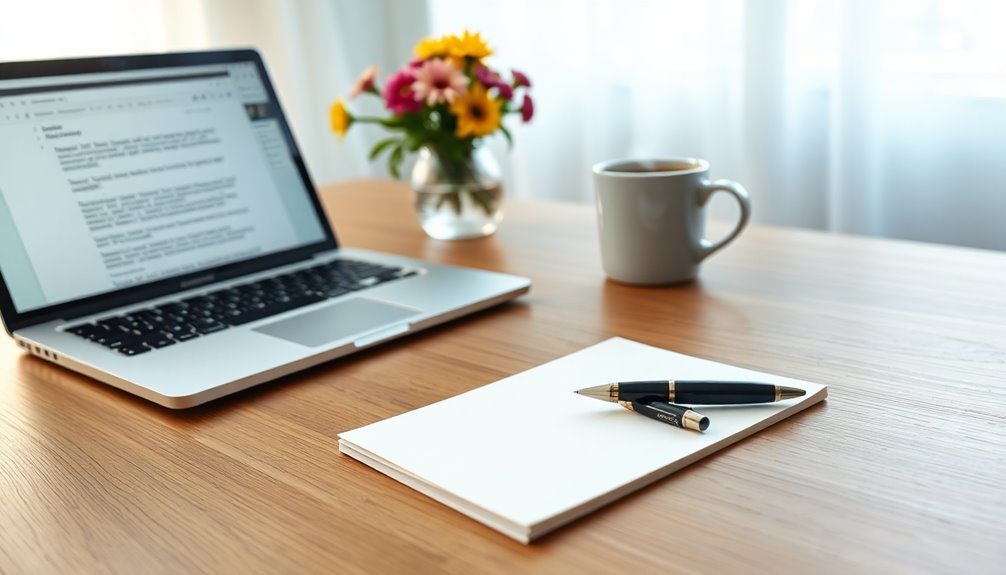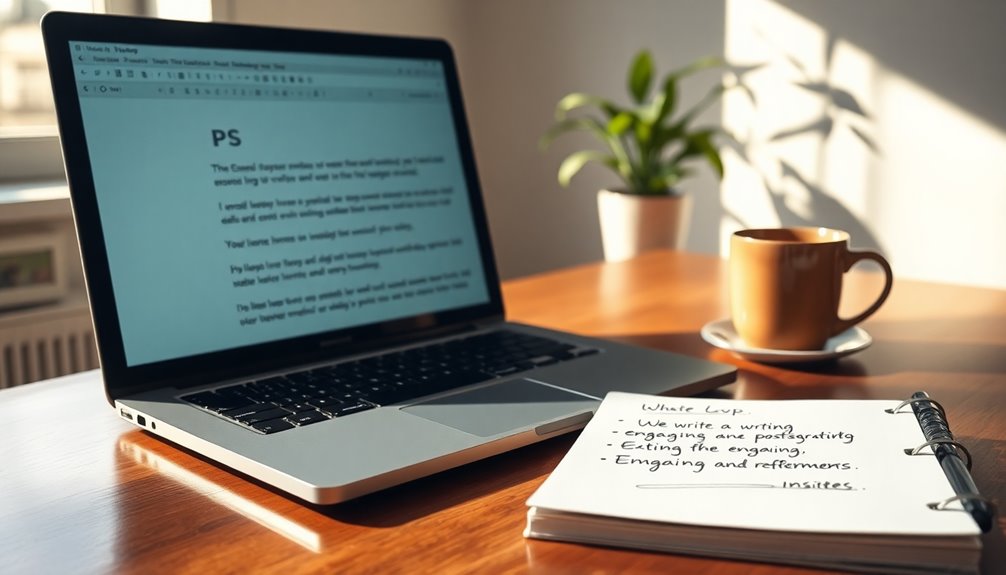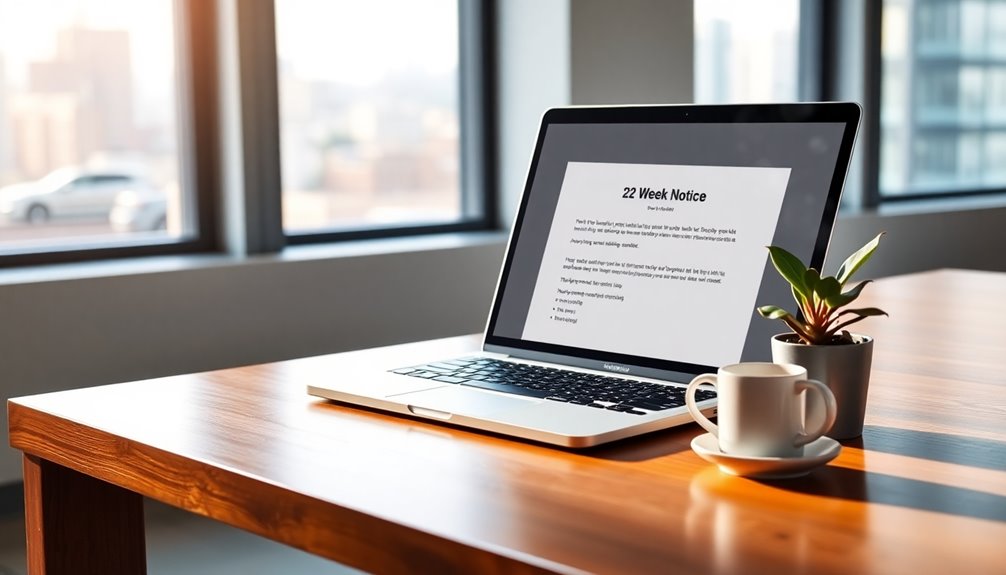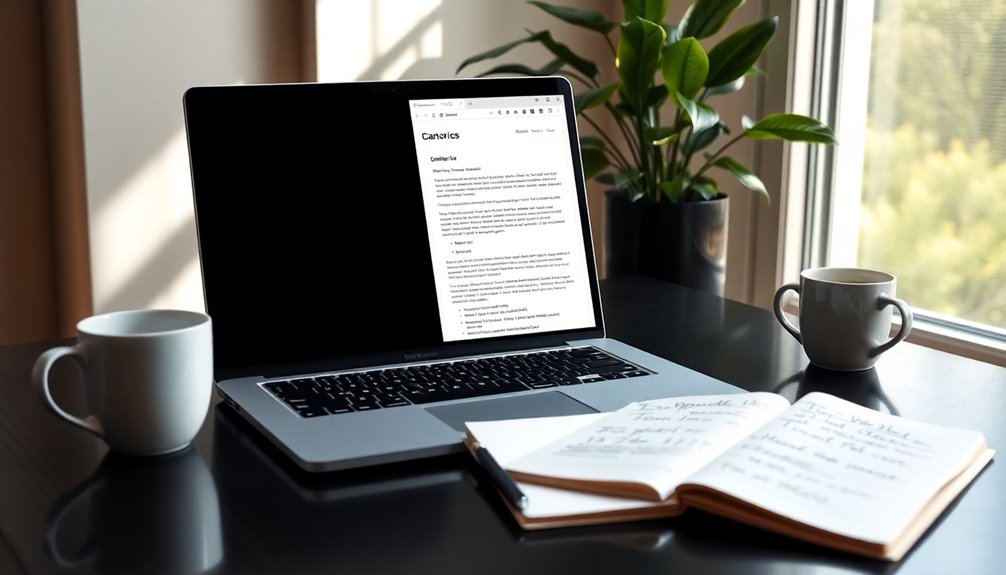To write a follow-up email after your interview that shows you're serious, send it within 24-48 hours. Start with a clear subject line like, "Thank You for the [Job Title] Interview." Begin with a polite greeting and thank the interviewer for their time. Mention specific details from your conversation to show your engagement, and express enthusiasm for the role. Keep it concise—aim for 1-2 paragraphs. Add a call to action, such as asking about next steps. This approach signals professionalism and can enhance your chances. There's more helpful advice to elevate your email strategy ahead.
Key Takeaways
- Send your follow-up email within 24-48 hours to demonstrate promptness and respect for the interviewer's time.
- Personalize your message by referencing specific topics discussed during the interview to show genuine engagement.
- Clearly express gratitude for the opportunity, highlighting your enthusiasm for the role and the company.
- Address any questions or concerns raised during the interview, reinforcing your qualifications and fit for the position.
- Use a professional tone and concise language, ensuring the email is well-structured and free of errors.
Introduction

In the hours following your interview, sending a follow-up email can significantly impact your chances of landing the job. It's essential to express gratitude for the opportunity and reinforce your interest in the position. A well-crafted follow-up email shows enthusiasm and professionalism, making a lasting impression on your potential employer.
Aim to send your email within 24-48 hours after the interview. This timely response reflects your eagerness and keeps you fresh in the interviewer's mind. Make sure to include a concise subject line, such as "Thank You for the [Job Title] Interview," so your email stands out in their inbox.
Personalizing the message by referencing specific points discussed during the interview helps remind the interviewer of your conversation and demonstrates your engagement.
You'll also want to maintain visibility, especially if you don't hear back after a couple of weeks. A follow-up at that point can reiterate your continued interest and inquire about your application status.
Demonstrates Your Professionalism
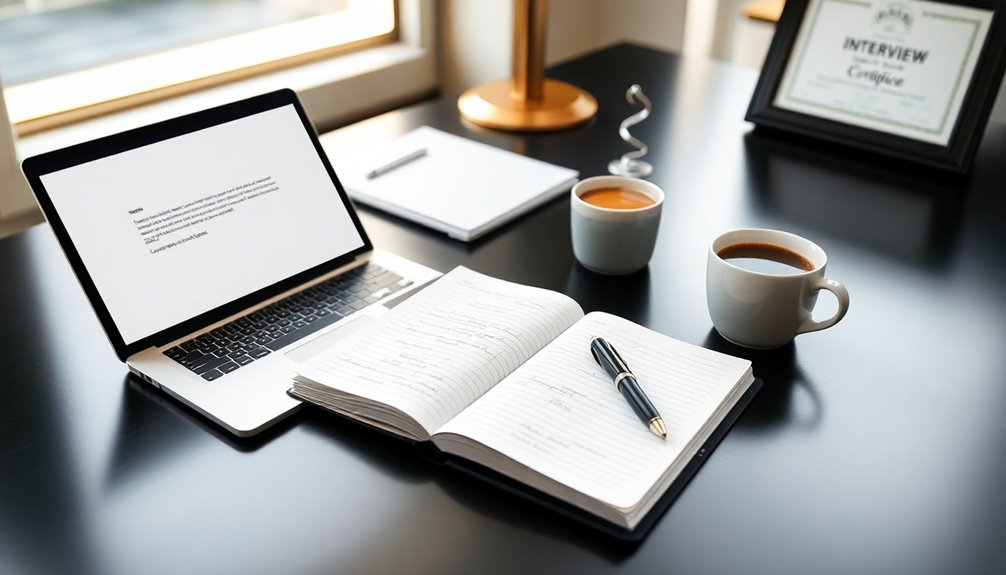
A timely follow-up email after your interview speaks volumes about your professionalism. Sending this email within 24-48 hours demonstrates your attentiveness and reinforces your interest in the position. It sets a professional tone and shows you value the time spent with the hiring manager.
Including a personalized thank-you email that references specific discussion points from the interview enhances your credibility. It signals that you were engaged during the conversation and are serious about the opportunity.
A well-structured follow-up email that's concise and free of errors reflects your communication skills and attention to detail—qualities essential in any professional setting. Additionally, demonstrating strong communication skills can positively influence the hiring manager's perception of your fit for the role.
In your follow-up, make sure to reinforce your qualifications and enthusiasm for the role. This not only solidifies your candidacy but also leaves a positive impression on the hiring manager.
Maintaining professionalism throughout your correspondence, using polite language and a respectful tone, can significantly impact the hiring manager's perception of you as a serious candidate.
Clear and Engaging Subject Line
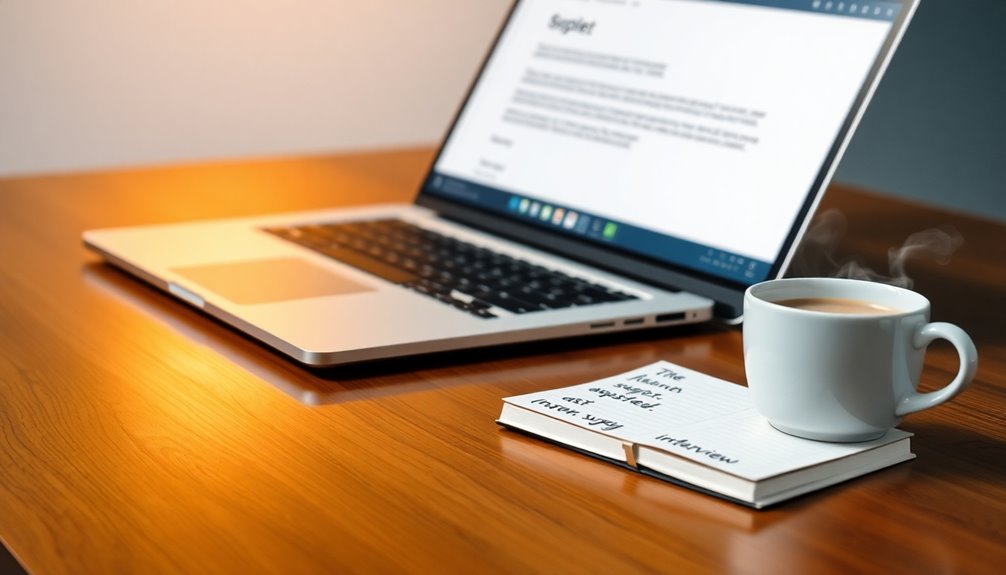
Crafting a clear and engaging subject line is crucial for your follow-up email. A clear subject line should reflect the purpose of your message, such as "Thank You for the [Job Title] Interview" or "Follow-Up on [Job Title] Position." This makes it immediately recognizable to the recipient.
Keep your subject line concise, ideally under 10 words, ensuring it's easily readable on mobile devices and within email previews.
Match your tone to the formality of the interview. For a formal interview, opt for a more professional tone, while a casual interview might allow for a slightly relaxed approach. Including the job title in the subject line helps the interviewer quickly identify the context of your email, especially if they're interviewing multiple candidates.
Avoid vague subject lines like "Quick Question" or "Follow-Up," as they may not convey your serious intent or the specific context of your message. Instead, focus on crafting an engaging subject line that demonstrates your professionalism and commitment to the position.
This small detail can make a significant difference in how your follow-up email is received.
Step-by-Step Guide to Follow-Up Emails

Sending a follow-up email after your interview can make a significant impact on how your candidacy is perceived. Aim to send your follow-up email within 24 hours to express your gratitude for the interviewers' time and to reinforce your interest in the position.
Start with a clear subject line, like "Thank You for the [Job Role] Interview," to ensure your email stands out.
In your email, keep it concise—1 to 2 paragraphs are ideal. Begin by thanking the interviewers and mentioning specific topics discussed during the interview. This not only shows you were engaged but also highlights your attentiveness.
Make sure to convey that you're still very much interested in the role and excited about the opportunity to contribute to their team.
If you don't receive a response after your initial follow-up, consider sending a polite follow-up two weeks later. In that email, you can inquire about the status of your application, reiterating your enthusiasm and qualifications.
Dos and Don'ts for Follow-Ups

Following up after an interview is crucial for making a lasting impression, and there are key dos and don'ts to keep in mind.
First, do send your follow-up email within 24-48 hours. This demonstrates promptness and highlights your enthusiasm for the opportunity to join the team.
Make sure to thank the interviewer sincerely for their time. Personalize your message by referencing specific topics discussed during the interview, which reinforces your engagement and interest.
Keep your email concise; aim for 1-2 concise paragraphs that cover key points without overwhelming the reader.
Don't forget to use a clear and relevant subject line, such as "Thank You for the [Job Title] Interview." A generic subject line can get lost in a crowded inbox.
Maintain a professional tone throughout your email; avoid casual language or emojis, as they may undermine your seriousness about the position.
Lastly, reiterate your interest in the role, leaving a positive impression.
Examples of Thank-You Emails
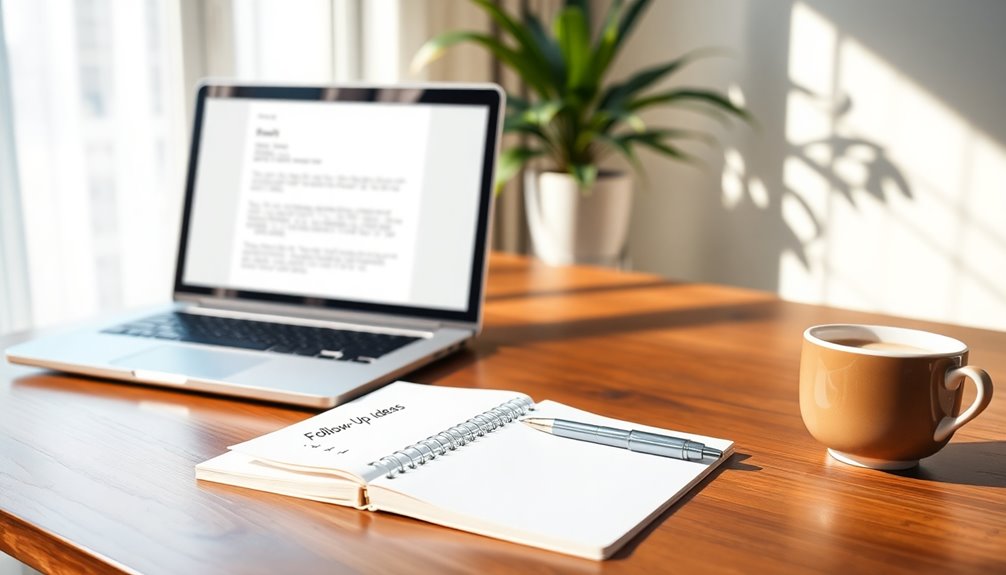
Keep your thank-you email concise, ideally just one or two paragraphs, to ensure it's easy for the interviewer to read.
Finally, close with a courteous sign-off, like, "Thank you once again for your time and consideration. I look forward to the opportunity to contribute to [company]."
This reflects professionalism and leaves a lasting positive impression.
Pro Tips for Writing Effective Emails
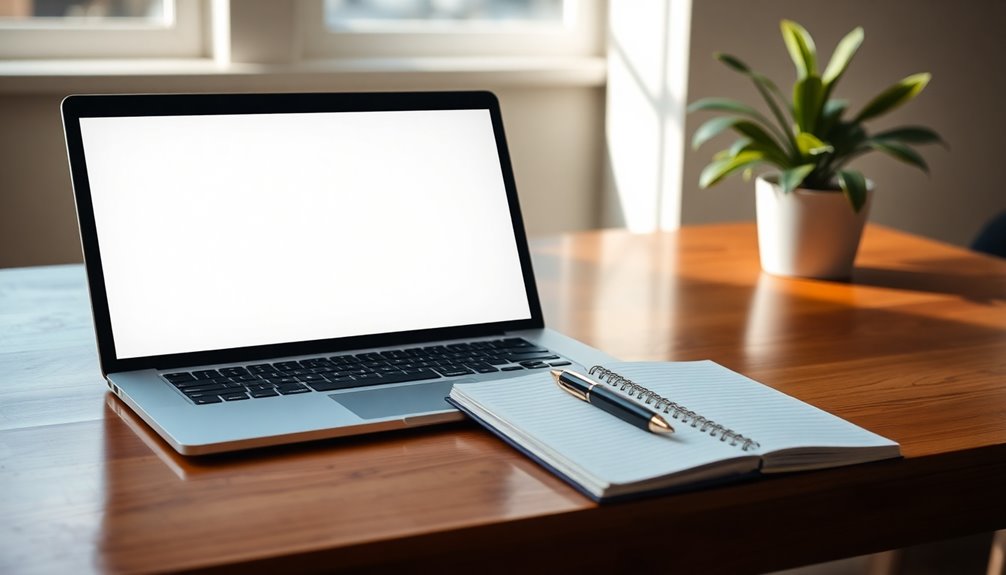
Crafting an effective follow-up email can significantly impact your job prospects, so it's essential to get it right. Send your follow-up email within 24 hours after the interview to demonstrate promptness and enthusiasm for the position.
Start by thanking the interviewer for their time to speak with you and express your excitement about the possibility of joining their team.
Make your email personal by referencing specific topics discussed during the interview. This shows your genuine interest in the company and the role.
Include a brief summary of your qualifications that align with the job, reinforcing your suitability as a candidate. Highlight how your skills and experiences can contribute to the company's goals.
Maintain a professional tone throughout your email. Use clear language and correct grammar to reflect your communication skills effectively.
Lastly, close your email with a polite invitation for further communication or questions. This not only emphasizes your eagerness to contribute to the company but also keeps the door open for ongoing dialogue.
Final Thoughts

While the interview process can be daunting, sending a thoughtful follow-up email can set you apart from other candidates. A well-crafted follow-up email should be sent within 24 hours to express your thank you for the opportunity and reinforce your interest in the position.
Personalizing your message by referencing specific topics from the interview creates a memorable connection with the interviewer.
Keep your follow-up concise—ideally 1-2 paragraphs—to clearly communicate your gratitude and enthusiasm without overwhelming the recipient. This professional tone reflects your seriousness and can positively influence hiring decisions. Additionally, ensuring your email is well-structured and mobile-responsive layouts can enhance readability and engagement.
If you haven't received a response within two weeks, consider sending a gentle reminder. This can reaffirm your interest and help you stay in touch, showing the interviewer you're still eager about the opportunity.
Frequently Asked Questions
How Do You Send a Polite Follow up Email After an Interview?
To send a polite follow-up email after an interview, start by crafting a clear subject line that reflects your appreciation.
Address the interviewer by name, and thank them for their time.
In the body, briefly mention specific points from your conversation to show you were engaged.
Keep it concise—one to two paragraphs is ideal.
Should You Send a Follow-Up Email After a Bad Interview?
Yes, you should send a follow-up email after a bad interview. It shows your professionalism and ongoing interest in the position. Additionally, a follow-up email gives you the opportunity to clarify any points you feel you didn’t express well during the interview and to reinforce your enthusiasm for the role. Even if you feel the interview didn’t go as planned, staying proactive can leave a positive impression on the hiring team. To prepare for all outcomes, you might also consider drafting a rejection email template after interview to gracefully respond if the opportunity doesn’t work out.
Acknowledge areas for improvement, but also highlight your relevant skills and experiences. This email can clarify any misunderstandings and demonstrate your ability to handle challenges gracefully.
Maintaining a polite tone keeps you in the employer's mind for future opportunities, even if this role doesn't pan out.
Can You Send a Clarifying Email After an Interview?
Yes, you can definitely send a clarifying email after an interview. It shows you're committed and willing to improve communication.
If there were any responses that felt incomplete or unclear, addressing them can highlight your qualifications better. Just keep it concise and focus on specific points.
Aim to send it within 24 hours to keep the conversation fresh, and be sure to express gratitude for the opportunity to clarify your thoughts.
What Is an Example of a Follow up Email After an Interview Status?
Hi [Interviewer’s Name],
I hope you're doing well!
I wanted to follow up on my interview for the [Job Role] position. I really appreciated our conversation about [specific point discussed], and I'm excited about the opportunity to join your team.
If you have any updates on the decision-making process, I'd love to hear them.
Thanks for your time, and I look forward to your response!
Best,
[Your Name]